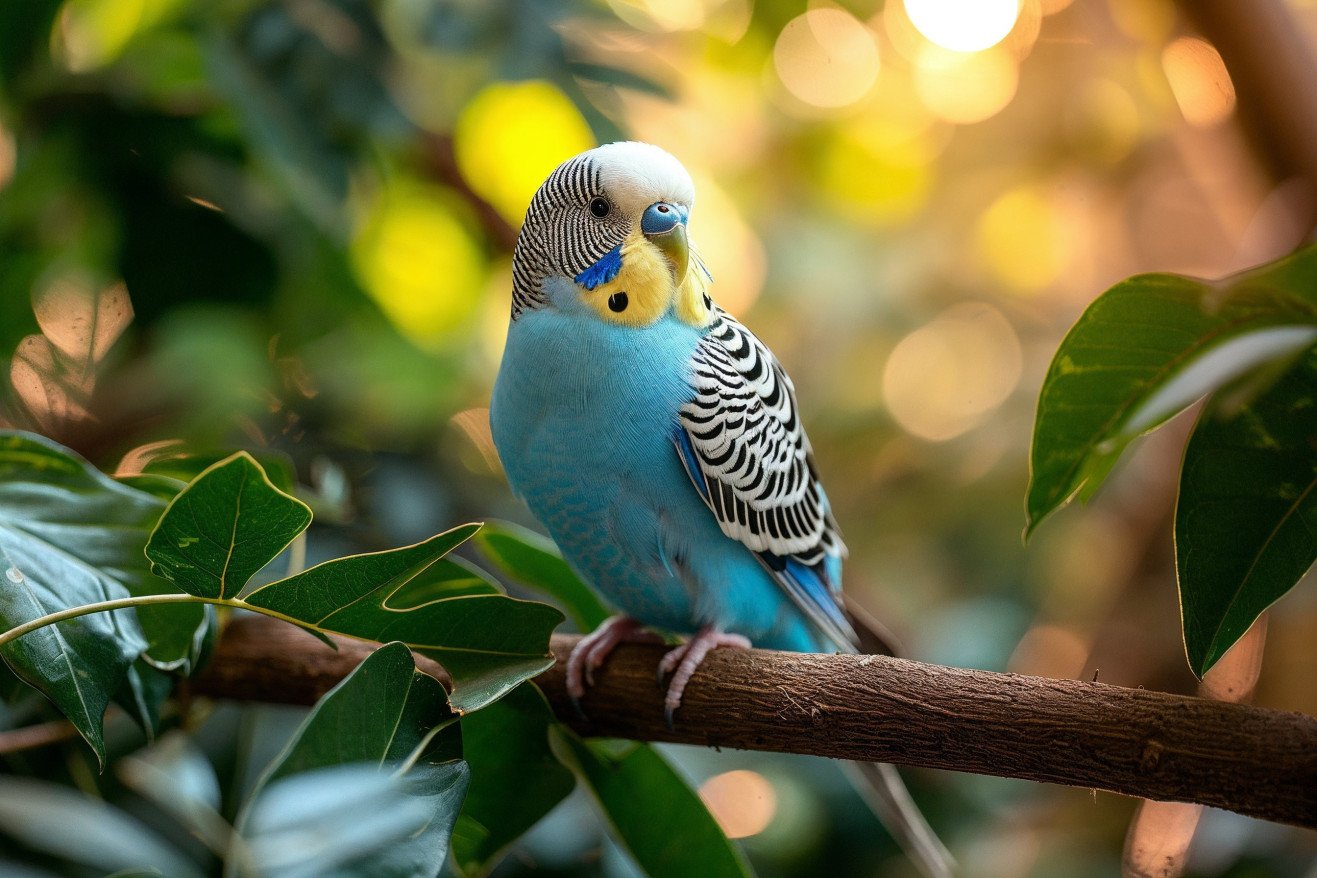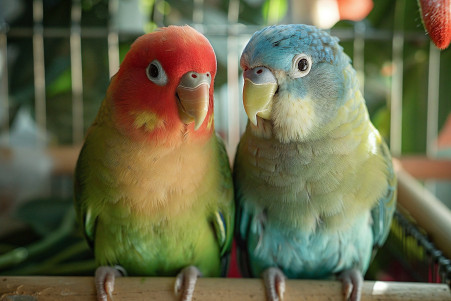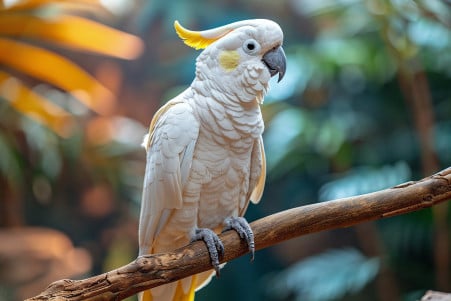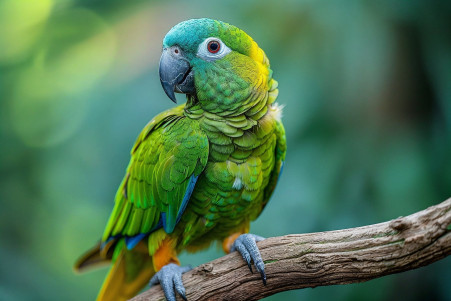How Long Do Budgies Live and What Influences Their Lifespan?
5 February 2024

Budgies are beloved for their bright colors and happy chirps, but how does this impact their lifespan? In captivity, with the right care, budgerigars, or budgies, can live between 5 and 10 years, although some may live as long as 15 years. In the wild, budgie lifespans average between 4 and 6 years, and this is largely due to the impact of the environment.
This article takes a deep dive into the factors that can impact how long a budgie lives, drawing on a variety of sources, including veterinary research, avian care recommendations, and biological studies. It looks at everything from diet and living conditions to genetics and mental health to determine how these factors impact the lifespan of these colorful birds.
Not only will this information help you better understand how long budgies live on average, but it will also help you learn how to improve and extend the lives of these popular avian pets.
What are the most significant factors influencing the lifespan of budgies?
How to Help Your Budgie Live a Long Life
A combination of proper nutrition, adequate living conditions, regular medical care, and social interaction can help ensure your budgie lives a long, healthy life.
PetMD explains that a healthy diet should include more than just seeds, and that adding pellets to your bird’s food can help prevent nutritional deficiencies.
Living conditions are important as well, and both PetMD and the Long Island Birds & Exotic Veterinary Clinic recommend a cage that is at least 18x18x18 inches so that your bird has plenty of room to engage in natural behaviors like foraging. They also recommend that the cage have multiple perches of different sizes to prevent foot problems.
Dr. Sean Perry stresses the importance of preventing disease, and says that regular veterinary care, including annual check-ups and parasite screenings, can help prevent illness.
Meanwhile, Dr. Teresa Manucy stresses the social needs of these birds, which are used to living in flocks, and says that social interaction and mental stimulation can help ensure a long life, and recommends that birds live in groups of at least four for the best social interaction. This well-rounded approach to care will be explored in more detail as we look at the specific dietary needs that can impact a budgie’s life expectancy.
The Science of Diet and Budgie Longevity
As with humans, a budgie’s diet plays a major role in their overall health and how long they live. While many pet owners feed their budgies a seed-only diet, this type of diet is low in essential nutrients and can lead to a number of health issues, including obesity, malnutrition, and a weakened immune system, all of which can shorten a budgie’s life.
In fact, studies have shown that these issues can lead to budgies living only 5 to 10 years, a far cry from the 15 years or more they can live with a diet that includes fresh fruits, vegetables, and pellets.
According to Lafeber Co., a combination of foods, including Nutri-Berries and daily servings of vegetables, will provide budgies with the vitamins and minerals they need to be healthy. This is in line with the advice from TOP Parrot Food, which recommends a diet that’s organic and free from fillers to help ensure a bird has the energy and interest they need to thrive.
Pet owners can help their birds transition to a healthier diet by slowly introducing new foods. For example, they can start by mixing fresh fruits, vegetables, and pellets in with their bird’s seed, and then gradually increase the amount of these healthier foods in the mix to help the bird get used to them.
As the diet improves, so does the potential for a longer, healthier life for your pet. Of course, it’s also important to take into account the genetic and environmental factors that also play a role in a budgie’s lifespan.
Genetic and Health Factors That Affect Lifespan
Genetic and health issues play a major role in how long a budgie will live. Genetic factors can make budgies more likely to develop certain health problems.
A study from the Bird & Exotics Veterinarian Care has found that tumors, thyroid disease, diabetes, and hepatic lipidosis are some of the most important factors that affect how long a budgie will live.
Genetic mutations and selective breeding can also make show budgies more likely to have a shorter lifespan. In his review of a study by Dr. J.R. Baker, Norman Webster notes that show budgies tend to live for only two to three years because of genetic and health issues like trichomoniasis and avian gastric yeast.
This emphasizes the importance of preventing and managing diseases like Psittacosis and Megabacteria, which can be devastating to budgies. Preventative measures like regular vet visits and knowing a budgie’s genetic history can help ensure that any health issues are caught and treated early, potentially increasing a budgie’s lifespan. While genetic factors can contribute to certain predispositions, it’s important for owners to provide a safe, supportive environment that reduces stress and promotes overall wellness.
Mental Health and Stress and How They Affect Lifespan
Stress can be a major factor in a budgie’s mental health and, therefore, its lifespan. According to The World’s Rarest Birds, common signs of stress in budgies include feather plucking, aggression, and changes in vocalization. If these signs are not addressed, they can be indicative of underlying health problems that can lead to more serious issues and a shorter lifespan.
Budgies also have unique personalities that can affect how they respond to stress and their overall health. Research published in Behavioral Ecology found that individual differences in cognitive ability and personality traits, including neophobia (fear of the new), can impact a budgie’s ability to adapt to changes in its environment and, therefore, its lifespan.
To help ensure that your budgie is living a stress-free life, it’s important to make sure that it has enough space, proper lighting, regular social interaction, and mentally stimulating toys.
In addition, PetMD recommends that keeping a budgie’s environment as stress-free as possible can be achieved by addressing health problems as soon as they arise and maintaining a consistent routine. By working to minimize stressors, budgie owners can help ensure that their pets have good mental health and, in turn, a better chance at a longer, healthier life.
A Budgie’s Life: Understanding the Factors That Impact Budgie Longevity
Every moment in a budgie’s colorful life is a reflection of the care they are given. Studies have shown that the average lifespan of a budgie in captivity is between 5 and 10 years, but with the right care, they can live to be 15 years old.
A healthy diet that goes beyond just seeds, the right housing to support their physical health, regular vet visits, and a stress-free environment that includes social interaction are all important factors that can help ensure a budgie’s long life.
Research has also shown that genetic factors and common health problems can impact a budgie’s lifespan. It’s important for owners to understand these factors so that they can help their birds live longer, healthier lives. By learning about the impact of a healthy diet, genetics, and mental health, and then applying this knowledge to their care, budgie owners can create an environment that helps their pets live a longer, healthier, and happier life.
Taking on the responsibility of caring for a budgie can be rewarding and provide a special bond. In the end, it’s important to remember that the health and happiness of these wonderful birds is in our hands. Let’s make sure that we enjoy every moment with our budgies and help them live their best lives.


